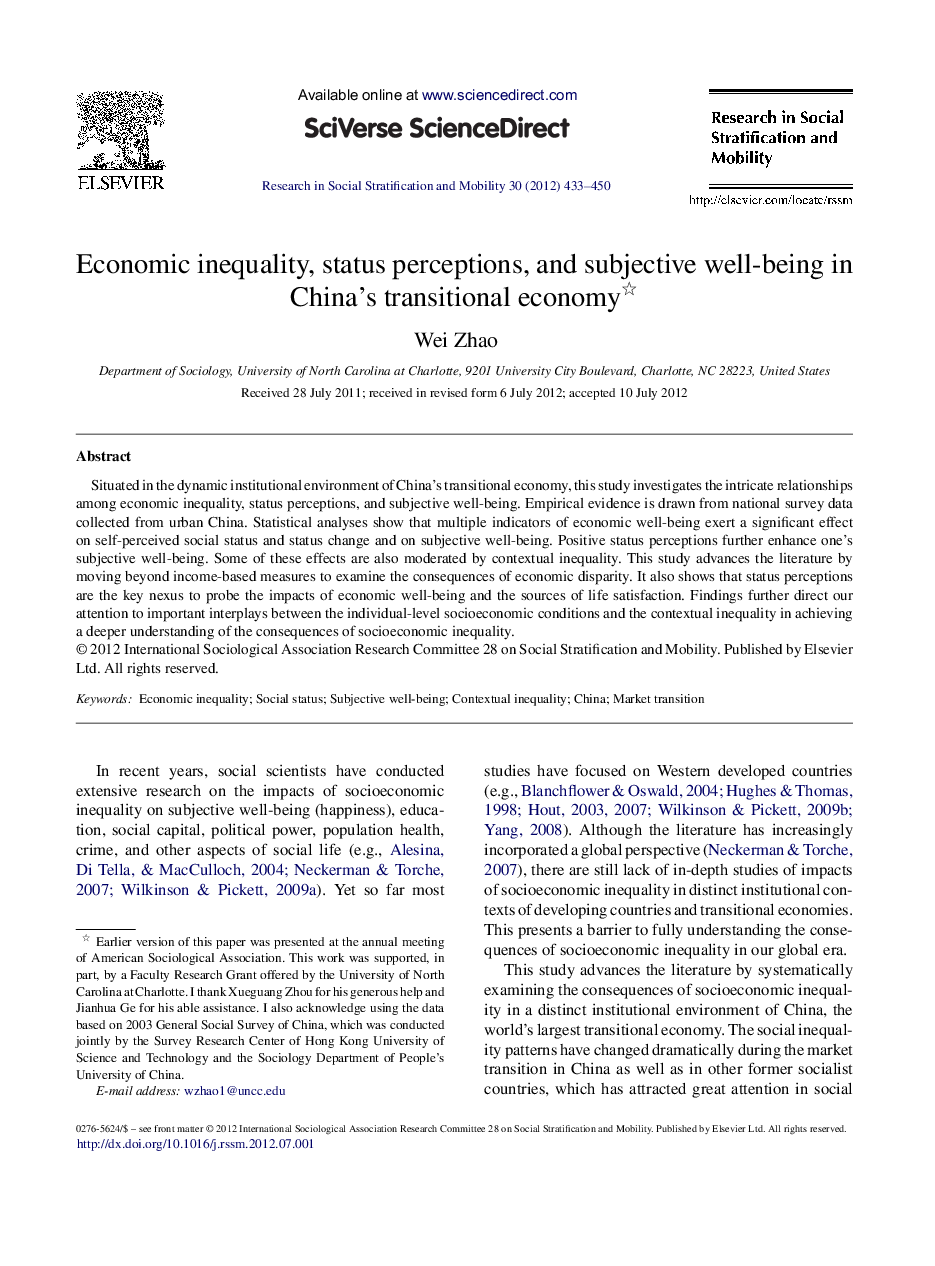| Article ID | Journal | Published Year | Pages | File Type |
|---|---|---|---|---|
| 1000676 | Research in Social Stratification and Mobility | 2012 | 18 Pages |
Situated in the dynamic institutional environment of China's transitional economy, this study investigates the intricate relationships among economic inequality, status perceptions, and subjective well-being. Empirical evidence is drawn from national survey data collected from urban China. Statistical analyses show that multiple indicators of economic well-being exert a significant effect on self-perceived social status and status change and on subjective well-being. Positive status perceptions further enhance one's subjective well-being. Some of these effects are also moderated by contextual inequality. This study advances the literature by moving beyond income-based measures to examine the consequences of economic disparity. It also shows that status perceptions are the key nexus to probe the impacts of economic well-being and the sources of life satisfaction. Findings further direct our attention to important interplays between the individual-level socioeconomic conditions and the contextual inequality in achieving a deeper understanding of the consequences of socioeconomic inequality.
